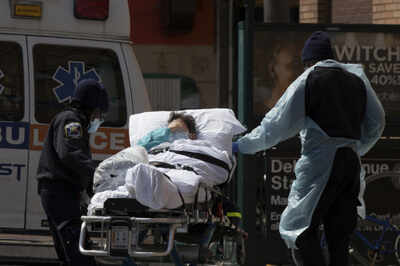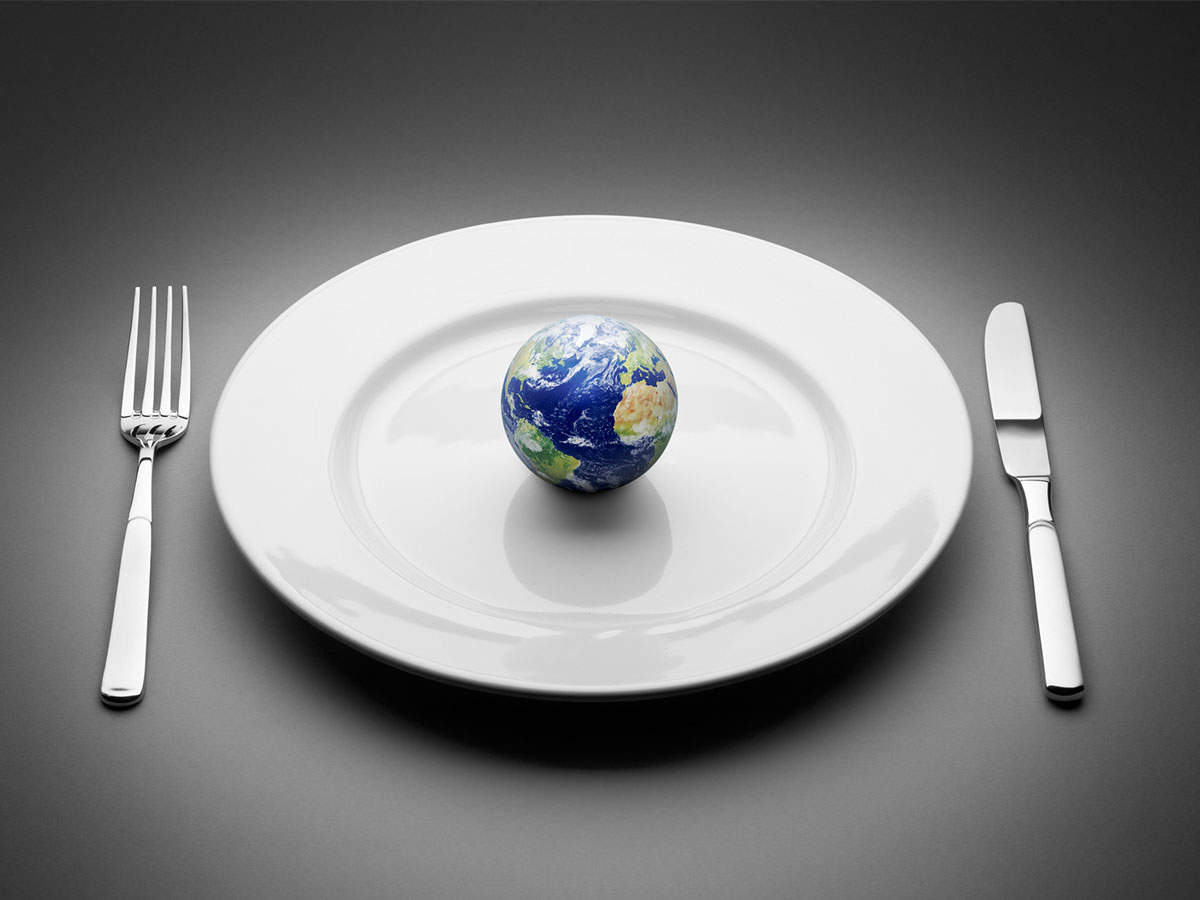
The virus, SARS-Cov-2, which causes Covid-19, enters your body once you breathe it in — after someone nearby has either coughed or sneezed or you have touched a contaminated surface with your hands, which then have touched your face.
FIRST BASE: Its first target is the cell lining of your throat, airways and lungs, which it converts into "coronavirus factories". These infected cells in turn spew out more viruses which then infect more cells in your body. This is the start of the incubation period during which you won't feel sick — in fact, some people may never develop symptoms and are called asymptomatic carriers. While the incubation period differs from person to person, on an average, it's five days.
Read our coronavirus live blog for all the latest news and updates
THE LULL: For 80% of the people who get infected with SARS-Cov-2, the disease will manifest itself as a mild infection, with fever and cough — other symptoms such as body ache, sore throat and headaches may or may not occur. The fever and the feeling of being sick is actually your body's immune response to the virus — with the body releasing chemicals called cytokines to fight off the viral infection.
BEATING RETREAT: The cough that you experience is initially a dry one, caused by the infected cells which cause the irritation in the throat. In some people, this dry cough may progress to one where sputum — mucus containing dead lung cells killed by the virus — is spewed out. This stage usually lasts a week and is cured by following simple basics, such as bed rest, plenty of fluids and paracetamol — without requiring hospitalisation — which allows the body's immune system to fight off the infection.
Coronavirus outbreak: Complete coverage
ALARM BELLS: Ironically, the severity of the disease, if it progresses, is collateral damage caused by the immune system's aggravated response to the virus. This overreaction causes inflammation — which, if it happens in the lungs, is termed pneumonia wherein the air sacs in the lungs, where oxygen and carbon dioxide trade places in your blood, start filling up with water, causing difficulty in breathing, necessitating a ventilator to help breathe. 14% of Covid-19 cases are likely to reach this stage.
It's time to mask up and stay safe: Join TOI's #MaskIndia campaign
CODE RED: Six percent of Covid-19 cases may become critically ill, as their immune system has spiralled out of control and is now damaging the body more than damaging the virus. There's a real possibility of septic shock with blood pressure dropping to extremely low levels and all around organ failure. At this stage, the person is suffering from acute respiratory distress syndrome, wherein the inflammation in the lungs doesn't allow the body the oxygen it requires to survive. A last ditch effort is an invasive procedure called ECMO or extra-corporeal membrane oxygenation wherein an artificial lung takes the blood out of the body, oxygenates it and then pumps it back in — however, by this time the organs are so badly damaged that they can't keep the body alive.
FIRST BASE: Its first target is the cell lining of your throat, airways and lungs, which it converts into "coronavirus factories". These infected cells in turn spew out more viruses which then infect more cells in your body. This is the start of the incubation period during which you won't feel sick — in fact, some people may never develop symptoms and are called asymptomatic carriers. While the incubation period differs from person to person, on an average, it's five days.
Read our coronavirus live blog for all the latest news and updates
THE LULL: For 80% of the people who get infected with SARS-Cov-2, the disease will manifest itself as a mild infection, with fever and cough — other symptoms such as body ache, sore throat and headaches may or may not occur. The fever and the feeling of being sick is actually your body's immune response to the virus — with the body releasing chemicals called cytokines to fight off the viral infection.
BEATING RETREAT: The cough that you experience is initially a dry one, caused by the infected cells which cause the irritation in the throat. In some people, this dry cough may progress to one where sputum — mucus containing dead lung cells killed by the virus — is spewed out. This stage usually lasts a week and is cured by following simple basics, such as bed rest, plenty of fluids and paracetamol — without requiring hospitalisation — which allows the body's immune system to fight off the infection.
Coronavirus outbreak: Complete coverage
ALARM BELLS: Ironically, the severity of the disease, if it progresses, is collateral damage caused by the immune system's aggravated response to the virus. This overreaction causes inflammation — which, if it happens in the lungs, is termed pneumonia wherein the air sacs in the lungs, where oxygen and carbon dioxide trade places in your blood, start filling up with water, causing difficulty in breathing, necessitating a ventilator to help breathe. 14% of Covid-19 cases are likely to reach this stage.
It's time to mask up and stay safe: Join TOI's #MaskIndia campaign
CODE RED: Six percent of Covid-19 cases may become critically ill, as their immune system has spiralled out of control and is now damaging the body more than damaging the virus. There's a real possibility of septic shock with blood pressure dropping to extremely low levels and all around organ failure. At this stage, the person is suffering from acute respiratory distress syndrome, wherein the inflammation in the lungs doesn't allow the body the oxygen it requires to survive. A last ditch effort is an invasive procedure called ECMO or extra-corporeal membrane oxygenation wherein an artificial lung takes the blood out of the body, oxygenates it and then pumps it back in — however, by this time the organs are so badly damaged that they can't keep the body alive.
Download
The Times of India News App for Latest India News
Subscribe
Start Your Daily Mornings with Times of India Newspaper! Order Now

Coronavirus outbreak
Trending Topics
LATEST VIDEOS
More from TOI
Navbharat Times
Featured Today in Travel
Quick Links
Coronavirus in MumbaiCoronavirus in KolkataCoronavirus in HyderabadCoronavirus in DelhiCoronavirus in BangaloreCoronavirus symptomsCoronavirus in IndiaWhat is CoronavirusCoronavirus NewsSolar EclipseNPRWhat is NRCCAB BillCAB and NRCRTI BillPodcast newsLok SabhaShiv SenaYSRCPCongressBJP newsUIDAIIndian ArmyISRO newsSupreme Court
Get the app









